

June 5 – 11: “What was the novel that turned you into a writer?”
 Carrie? A Separate Peace? The Road? Rabbit At Rest? This week we’re joined by ITW Members Linda Thorne, Khaled Talib, David Salkin, Alan Drew, Christine Goff, Susan Wingate and Kendra Elliott as they answer the question: “What was the novel that turned you into a writer?”
Carrie? A Separate Peace? The Road? Rabbit At Rest? This week we’re joined by ITW Members Linda Thorne, Khaled Talib, David Salkin, Alan Drew, Christine Goff, Susan Wingate and Kendra Elliott as they answer the question: “What was the novel that turned you into a writer?”
~~~~~
 Alan Drew is the author of the critically acclaimed debut novel, Gardens of Water. He is a graduate of the Iowa Writers’ Workshop. An associate professor of English at Villanova University where he directs the creative writing program, he lives near Philadelphia with his wife and two children.
Alan Drew is the author of the critically acclaimed debut novel, Gardens of Water. He is a graduate of the Iowa Writers’ Workshop. An associate professor of English at Villanova University where he directs the creative writing program, he lives near Philadelphia with his wife and two children.
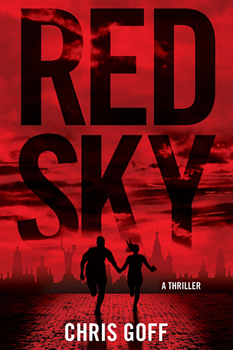 An award-winning author and Rogue Woman, Chris Goff‘s recent international thriller, RED SKY, hits the stands June 13th. Set in Ukraine and Asia, Agent Raisa Jordan tests the boundaries of diplomacy as she races to prevent the start of a new Cold War. Catherine Coulter had this to say: “Breathtaking suspense, do not miss Red Sky.” Goff’s series debut, DARK WATERS, was dubbed “a sure bet for fans of international thrillers” by Booklist, and nominated for the 2016 Colorado Book Award and Anthony Award for Best Crime Fiction Audiobook.
An award-winning author and Rogue Woman, Chris Goff‘s recent international thriller, RED SKY, hits the stands June 13th. Set in Ukraine and Asia, Agent Raisa Jordan tests the boundaries of diplomacy as she races to prevent the start of a new Cold War. Catherine Coulter had this to say: “Breathtaking suspense, do not miss Red Sky.” Goff’s series debut, DARK WATERS, was dubbed “a sure bet for fans of international thrillers” by Booklist, and nominated for the 2016 Colorado Book Award and Anthony Award for Best Crime Fiction Audiobook.
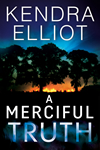 Kendra Elliot has sold over 3.5 million books. She has hit the Wall Street Journal top ten bestseller list four times and is a three-time winner of the Daphne du Maurier award for Romantic Suspense. She is also an International Thriller Writers’ finalist and a Romantic Times finalist. She grew up in the lush Pacific Northwest and still lives there with her husband, three daughters, two cats, and two Pomeranians. She’s always been fascinated with forensics, refuses to eat anything green, and can’t wait to wear flip flops every day.
Kendra Elliot has sold over 3.5 million books. She has hit the Wall Street Journal top ten bestseller list four times and is a three-time winner of the Daphne du Maurier award for Romantic Suspense. She is also an International Thriller Writers’ finalist and a Romantic Times finalist. She grew up in the lush Pacific Northwest and still lives there with her husband, three daughters, two cats, and two Pomeranians. She’s always been fascinated with forensics, refuses to eat anything green, and can’t wait to wear flip flops every day.
 #1 Amazon bestselling author, Susan Wingate graduated from Arizona State University with a degree in accounting. She has written thirteen books under her name and four under a closed pen name. Susan is the author of award-winning novels such as, The Deer Effect, Drowning, and the Bobby’s Diner series. She offers inspirational keynotes about the craft of writing and the publishing industry. She is a diverse author with books ranging from YA romance fantasy to upmarket women’s thrillers.
#1 Amazon bestselling author, Susan Wingate graduated from Arizona State University with a degree in accounting. She has written thirteen books under her name and four under a closed pen name. Susan is the author of award-winning novels such as, The Deer Effect, Drowning, and the Bobby’s Diner series. She offers inspirational keynotes about the craft of writing and the publishing industry. She is a diverse author with books ranging from YA romance fantasy to upmarket women’s thrillers.
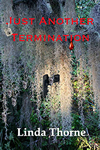 Linda Thorne has published numerous short stories in the genres of mystery, thriller, and romance. Her debut novel, Just Another Termination tells the story of Judy Kenagy, the first human resources manager to turn sleuth. She is currently writing the second book in her series, A Promotion to Die For. Like her lead character, Thorne is a career HR manager. She currently lives in the Nashville area of Tennessee with her husband and two border collies.
Linda Thorne has published numerous short stories in the genres of mystery, thriller, and romance. Her debut novel, Just Another Termination tells the story of Judy Kenagy, the first human resources manager to turn sleuth. She is currently writing the second book in her series, A Promotion to Die For. Like her lead character, Thorne is a career HR manager. She currently lives in the Nashville area of Tennessee with her husband and two border collies.
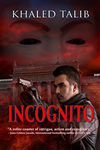 Khaled Talib is the author of INCOGNITO coming soon from World Castle Publishing, as well as the thriller, Smokescreen. Khaled is a former journalist with local and international exposure. His articles have been published and syndicated to newspapers worldwide, and his short stories have appeared in literary journals and magazines. The author resides in Singapore.
Khaled Talib is the author of INCOGNITO coming soon from World Castle Publishing, as well as the thriller, Smokescreen. Khaled is a former journalist with local and international exposure. His articles have been published and syndicated to newspapers worldwide, and his short stories have appeared in literary journals and magazines. The author resides in Singapore.
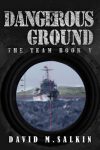 David M. Salkin is the author of 13 novels, with Penguin, Post Hill Press and Permuted Press. Salkin’s novels include military-espionage, action-adventure, science-fiction, horror, and crime thrillers.
David M. Salkin is the author of 13 novels, with Penguin, Post Hill Press and Permuted Press. Salkin’s novels include military-espionage, action-adventure, science-fiction, horror, and crime thrillers.
- LAST GIRL MISSING with K.L. Murphy - July 25, 2024
- CHILD OF DUST with Yigal Zur - July 25, 2024
- THE RAVENWOOD CONSPIRACY with Michael Siverling - July 19, 2024
